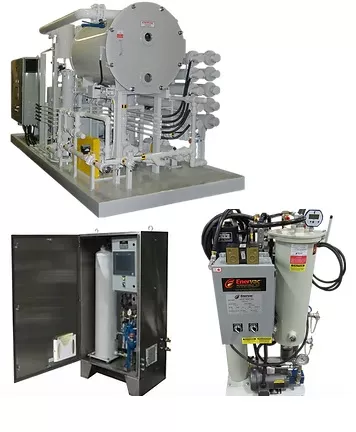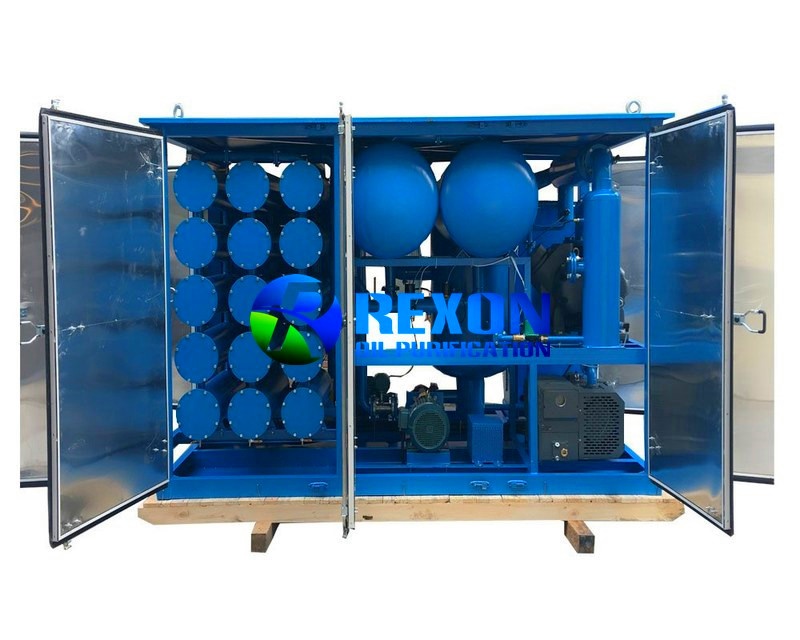Why Regenerated Transformer Oil Is Necessary for Reliable Power Solutions
The crucial function of regenerated transformer oil in making sure the reliability of power systems can not be overstated. By recovering the oil's fundamental chemical and physical buildings, the regrowth process substantially boosts its dielectric toughness and thermal performance. This not just reduces the chance of insulation failings yet additionally adds to the durability and effectiveness of transformers. As we check out the diverse benefits of this technique, the effects for both functional expenses and environmental sustainability come to be increasingly apparent, increasing essential questions about exactly how these factors interplay in contemporary electric infrastructure.
Value of Transformer Oil
Transformer oil plays an important function in the effective operation of electrical transformers. By offering thermal conductivity, transformer oil dissipates warm produced throughout electrical procedure, which is important for maintaining ideal operating temperature levels and prolonging the lifespan of the devices.
Additionally, transformer oil works as an obstacle against dampness and air, which can lead to oxidation and destruction of transformer products. The existence of impurities in the oil can significantly impair its insulating homes, leading to functional ineffectiveness and possible devices failure. Regular monitoring and upkeep of transformer oil are as a result important to ensuring the continued performance of transformers.
The high quality and structure of transformer oil are extremely important, as they directly influence the dependability and performance of the electrical systems in which they operate. Comprehending the importance of transformer oil is essential for utilities and markets reliant on robust power framework, stressing the demand for efficient monitoring and regeneration processes to maintain oil stability in time.
Advantages of Regeneration Process

Additionally, the regeneration process alleviates the degradation of oil, which can cause enhanced oxidation and acid development. This not just boosts the dependability of the oil but also reduces the threat of transformer failings due to insulation failure. The enhanced quality of regenerated oil enables transformers to run at optimal levels, ultimately causing improved energy effectiveness and lowered functional costs.
Furthermore, the regrowth procedure adds to keeping the overall health and wellness of the power system. Transformers can run longer without the requirement for oil substitute, hence reducing downtime and maintenance efforts. In summary, the regeneration procedure gives substantial advantages by boosting the long life and performance of transformer oil, guaranteeing that power systems run accurately and effectively with time.
Environmental Effect and Sustainability
The regeneration procedure of transformer oil considerably reduces environmental worries connected with oil disposal and waste monitoring. Standard disposal techniques for used transformer oil position substantial risks, consisting of dirt contamination and water air pollution. By regenerating oil, these threats are markedly reduced, as the procedure recycles existing sources as opposed to adding to waste accumulation.
Moreover, regenerated transformer oil can be reused in various applications, which advertises a circular economy. This not just reduces the need for virgin oil removal-- a process that can be environmentally destructive-- however also preserves natural resources. The regrowth process browse around this web-site itself uses get more advanced filtration and filtration methods that remove unsafe impurities, making certain that the last product meets or exceeds industry requirements for performance and safety and security.

Enhancing Transformer Performance
Considerable renovations in transformer efficiency can be achieved with the use of regenerated transformer oil. This oil, created via sophisticated purification procedures, considerably boosts the electrical insulation homes of transformers. By removing contaminations and contaminants that commonly jeopardize efficiency, restored oil ensures exceptional dielectric stamina, reducing the danger of electrical failings.
In addition, regenerated transformer oil shows boosted thermal conductivity, which promotes efficient heat dissipation. This characteristic is important for preserving optimum operating temperature levels, thereby lengthening the life expectancy of transformers and minimizing the possibility of overheating - Transformer Oil Regeneration Plant. Improved thermal administration likewise adds to the general dependability of power systems
In addition, the chemical stability of regrowed oil avoids the formation of corrosive acids and sludge, which can adversely affect transformer components. By keeping a cleaner internal environment, this oil decreases maintenance requirements and prolongs service intervals.
Cost-Effectiveness and Efficiency
In regards to cost-effectiveness and effectiveness, regrowed transformer oil presents an engaging option to standard oils. The regeneration procedure not only eliminates impurities however likewise recovers the oil's original visit this site homes, expanding its useful lifespan. This long life converts into lowered frequency of oil substitute, consequently reducing operational costs gradually.
In addition, using regrowed oil can significantly lessen energy losses connected with ineffective shielding fluids. Its exceptional dielectric buildings guarantee optimum performance, boosting the integrity of power systems. Because of this, businesses gain from lower upkeep expenses and decreased downtime, promoting an extra reliable operational atmosphere.

Conclusion
To conclude, the regrowth of transformer oil plays a critical function in ensuring the dependability and efficiency of power systems. By restoring the vital chemical and physical buildings of the oil, this process enhances dielectric stamina and thermal conductivity, inevitably decreasing the danger of insulation breakdown. The ecological benefits connected with reusing resources contribute to sustainability efforts, while cost-effectiveness and improved efficiency emphasize the need of utilizing regenerated transformer oil in modern electrical framework.
Transformer oil plays a crucial role in the efficient operation of electrical transformers. Normal surveillance and upkeep of transformer oil are consequently crucial to ensuring the continued effectiveness of transformers.
The regeneration procedure of transformer oil considerably relieves ecological problems linked with oil disposal and waste monitoring. By lengthening the lifecycle of transformer oil, the power and sources normally eaten in creating new oil are considerably reduced.Considerable improvements in transformer performance can be attained via the usage of regenerated transformer oil.